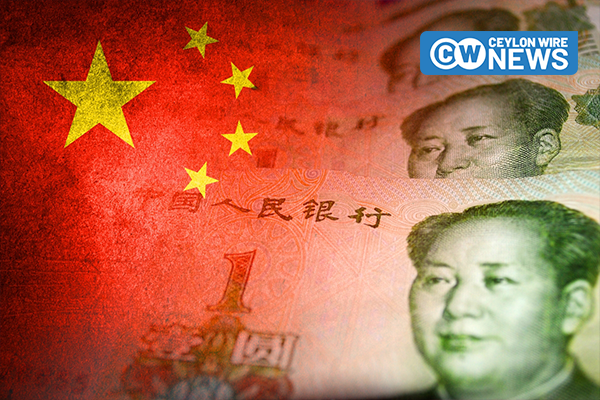In a significant development drawing attention from China observers, Beijing has escalated efforts to suppress criticism of the country’s economic trajectory, particularly within the financial sector. This crackdown on dissent has sparked worries about the transparency and resilience of China’s economic policies. The recent surge in censorship, especially in the realm of financial news, has marked a broader crackdown in 2024. China’s Ministry of State Security, through its official WeChat account, is urging citizens to dismiss what they label as “false narratives” about the economy while simultaneously warning of increased security measures to quash negative discourse.
A notable casualty in this ongoing suppression is Chen Shouhong, a respected Chinese economist known as “Ge Long.” The founder of Gelonghui, a prominent online platform dedicated to global investment information dissemination, Chen Shouhong holds a Ph.D. in finance from Zhongnan University of Economics and Law. His Weibo account, with 377,000 followers, was abruptly suspended on February 23, citing a violation of relevant laws and regulations. This abrupt suspension has raised questions about the extent to which Beijing is willing to go to control the narrative surrounding its economic challenges.
In a Weibo video last fall, Mr. Chen outlined three primary reasons for China’s economic crisis. Unsurprisingly, the video was swiftly removed by Chinese Communist Party (CCP) censors. Despite the challenges, Mr. Chen’s credibility remains intact, bolstered by his 25 years of experience in both domestic and foreign investment. Currently serving as the Chairman and CEO of Gelonghui Information Technology (Group) Co., Ltd., Mr. Chen’s insights carry considerable weight within economic circles.
Mr. Chen’s concerns revolve around the CCP’s economic policy of “dual circulation.” He expresses apprehension about the potential adoption of a trajectory leading to “internal and external isolation and closure,” which could result in the Chinese economy relying solely on internal circulation.
Tourism, a significant driver of economic activity, has witnessed a substantial decline, especially in foreign visitors to China. Mr. Chen highlighted a staggering 98.6% decrease in foreign travelers, from 3.7 million in the first quarter of 2019 to a mere 52,000 in the corresponding period of 2023. This dramatic decline, coupled with the departure of a sizable expatriate population from cities like Shanghai, paints a bleak picture of China’s international appeal.
Frank Xie, a professor of business at the University of South Carolina’s Aiken School of Business, provided additional insights into China’s economic situation in a recent interview. He emphasized the interconnected nature of reduced foreign visitors, flights, and capital flow, attributing the decline to the severing of economic ties with Europe and the United States. Mr. Xie argued that the CCP’s suppression of information and dissent, framed under the guise of national security, has further deterred foreign investors.
Examining the reduction in foreign investments, Mr. Chen highlighted a significant drop from $101.2 billion in the first quarter of 2022 to a mere $4.9 billion in the second quarter of 2023. This staggering decline, the lowest since the 1998 Southeast Asian fiscal crisis, underscores the challenges facing China’s economic landscape.
Mr. Xie provided a comprehensive perspective on the extent of China’s economic decline, estimating it to be as severe as “-5, -6 percent.” He pointed to the CCP’s retrogressive measures, including its suppression of information, technology blockade, and broader geopolitical tensions, as major contributors. These factors have led to China becoming the “abandoned child of the international community,” isolated both economically and politically.
Contrary to the CCP’s claims of economic growth, Mr. Xie contended that the three driving forces of the Chinese economy—exports, investment, and consumption—have all stalled. He questioned the veracity of the reported 5.2% growth, attributing it to deceptive practices. With China’s population decreasing and its labor force diminishing, the challenges facing the economy are substantial. In Mr. Xie’s view, China’s economy is regressing to its situation before joining the World Trade Organization in 2001, and this economic decline is anticipated to persist until at least 2025.
As China grapples with these economic challenges, the international community watches closely, assessing the potential implications for global markets and diplomatic relations. The interconnected nature of the world economy means that shifts in China’s economic landscape can reverberate globally. It remains to be seen how Beijing will navigate these challenges and whether there will be a shift in its economic policies to address the concerns raised by experts. The coming years are likely to be critical in determining the trajectory of China’s economic future and its place on the global stage. Source – thehongkongpost.com









